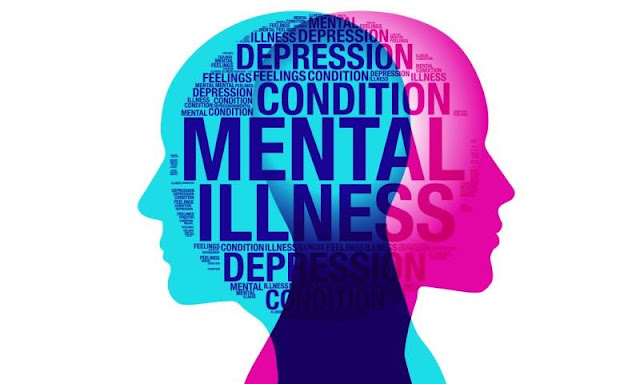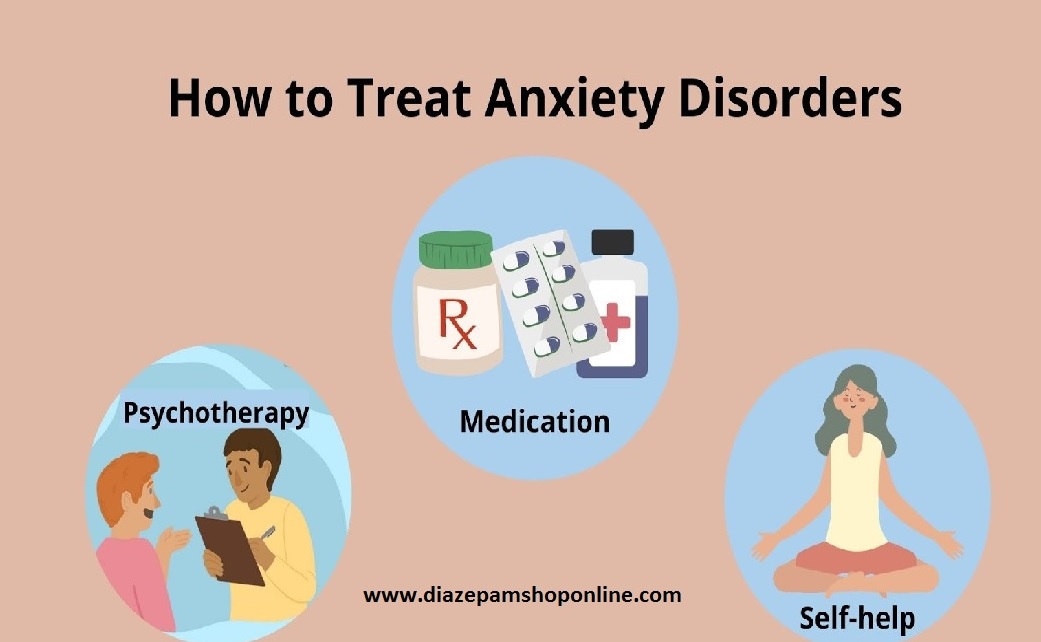Symptoms And Causes of Anxiety Disorders
It's common to have
uneasiness now and then. The constant worrying and panic over commonplace
circumstances are what those suffer from anxiety disorders experience. Anxiety
disorders sometimes entail recurrent episodes of acute anxiety, fear, or terror
that peak in a matter of minutes (panic attacks or anxiety attacks). Anxiety
disorders are indeed problematic as they can not only interfere with your daily
life but also your overall health. And hence, you must get rid of anxiety
disorder as soon as possible. You can treat the problem in various ways such as
taking an anti-anxiety medication or changing your overall
lifestyle altogether.
Since anxiety is
uncomfortable, hard to regulate, out-of-proportion to the real threat, and a
protracted sensation of worry, it will surely affect and interfere with your
daily activities. Children or teenagers may first have symptoms, which may then
last until adulthood. But what are these symptoms? Well, in this article you will
learn more about the symptoms of anxiety disorder, its causes, and the possible
treatments. To learn more, keep reading along.
What are the different types of anxiety disorders?
There are different
types of anxiety disorders ranging from general anxiety disorder to PTSD. But
for clear understanding, here is the complete list of all the different types
of anxiety disorders which people usually face and these include:
- Generalized Anxiety Disorder: Generalized Anxiety
Disorder (GAD) is a type of anxiety disorder that is characterized by
persistent anxiety, increased worry, and tension even in the absence of a
trigger.
- Obsessive-Compulsive Disorder (OCD): Recurrent,
unwanted thoughts (obsessions) and/or repetitive activities are hallmarks
of obsessive-compulsive disorder (OCD), an anxiety disorder (compulsions).
- Panic Disorder: Anxiety disorders like panic disorder
are characterized by sporadic, acute episodes of fear followed by physical
symptoms like shortness of breath, chest pain, heart palpitations, nausea,
and stomach discomfort.
- Post-Traumatic Stress Disorder (PTSD): anxiety
disorders such as post-traumatic stress disorder, or PTSD, can emerge
after exposure to a scary experience in which severe bodily injury
happened or was threatened.
- Social Phobia (or Social Anxiety Disorder): An anxiety
disorder called social phobia, also known as social anxiety disorder, is
characterized by extreme self-consciousness and overwhelming anxiety in
routine social situations.
No matter which type
of anxiety disorder the person is facing, the never-ending feeling of dread and
worry remains constant. However, anxiety disorders are more than this; there is
a complete list of symptoms that have been mentioned hereafter.
Causes of anxiety disorder
Anxiety
disorder can be the cause of constant stress that you may face from your job,
relationship, etc. Apart from that, you might also develop anxiety disorder if
it runs in your family. Women may develop this problem postnatal too. So, in a
way, we can say there are a wide variety of reasons.
Symptoms of Anxiety Disorder
Now, as we mentioned,
there are about five types of anxiety disorders but the symptoms are more or
less the same. So, you just have to check if you display the following
symptoms. But remember, you do not have to have all the listed symptoms, about
3,4 symptoms may indicate that you suffer from an anxiety disorder. Here is the
complete list of all the emotional and physical symptoms of anxiety disorder:
- Feeling nervous, restless, or tense
- Feeling of impending danger, panic, or doom
- Having an increased heart rate
- Breathing rapidly (hyperventilation)
- Sweating
- Trembling
- Feeling weak or tired
- Not being able to concentrate
- Having trouble sleeping
- Experiencing gastrointestinal (GI) problems
- Having difficulty controlling worry
Treatments for Anxiety
Disorder
Contrary to what
people think about mental disorders, they are very much curable; you just need
to get the right type of treatment methods. And the same applies to anxiety
disorders too. You can treat it in a blend of ways which include the following:
- Exercising or getting involved in more physical
activities such as gym, running, jogging, etc.
- Taking the right psychological therapies such as
Cognitive Behavior Therapy
- Try to have some talking Therapy
- Try to change your lifestyle; probably make it
healthier and more active by cutting out processed or junk foods and
eating healthier. And also includes effective stress management ways.
- Try taking the right and effective anti-anxiety medication such as Xanax, Diazepam, or Lorazepam.
Bottomline
Anxiety disorders have
become very common in current time but that does not mean they should be
ignored. So, if you suffer from any type of anxiety disorder, you must treat it
right away and if you doubt that you suffer from one, confirm it and they treat
it with effective tools and methods.



Comments
Post a Comment